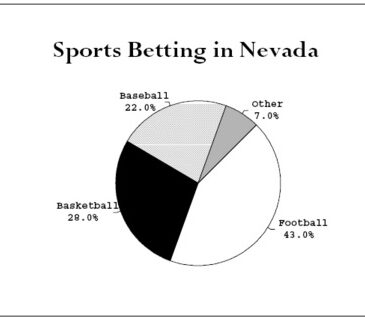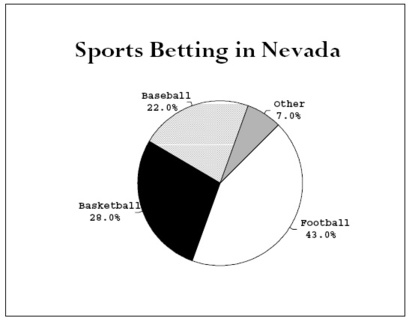Nevada is the only place in the U.S. where betting on college and professional sports is legal, apart from the Oregon Lottery. Legal sports betting, decreased stigma attached to sports betting, and improved settings for sports betting within casinos have all contributed to increasing sports wagering popularity since 1982. Although boxing is not one of the primary sports betting activities in Nevada (see chart)*, a former vice president of MGM Grand commented that boxing matches, more than any other hotel event, attract high-rollers. Gamblers who placed a bet on the Tyson-Holyfield fight on June 28th encountered an unusual situation. Mike Tyson lost by being disqualified for biting Holyfield’s ear. MGM Grand casino, where the match took place, closed for about two hours while security handled the ensuing chaos of the fight***. Nevada’s 129 sports books actually lost $4.9 million in the previous Tyson-Holyfield fight in November, when Holyfield unexpectedly beat Tyson**. The odds for Tyson in the June 28 match were 2.1 to 1, according to one consultant on the Internet4. Casinos cannot precisely predict the probability of a single outcome on any game or event. Therefore, sporting events provide more risk to the casino than table games. This situation suggests that casinos gamble more with sporting events than with any other gaming activity. In this unique situation, casinos become like their patrons. Future research will be necessary to determine how casinos and patrons behave following wins and losses in the sporting arena.
Sources:
*Palermo, D. (1997, April). Rewriting the book: Sports book operators are upgrading facilities to attract a new wave of gamblers. International Gaming & Wagering Business, 18(4), 45-52.
**Palermo, D. (1997, April). Marketing the main event. International Gaming & Wagering Business, 18(4), 50-51.
***Anderson, D. (1997, June 30). Sports of the times: Tyson really bit himself. The New York Times; 4Lou’s Views, on Comprehensive Sports Information web site: http://www.covers.com/csi/inside/lou_game.html.
This public education project is funded, in part, by The Andrews Foundation.





